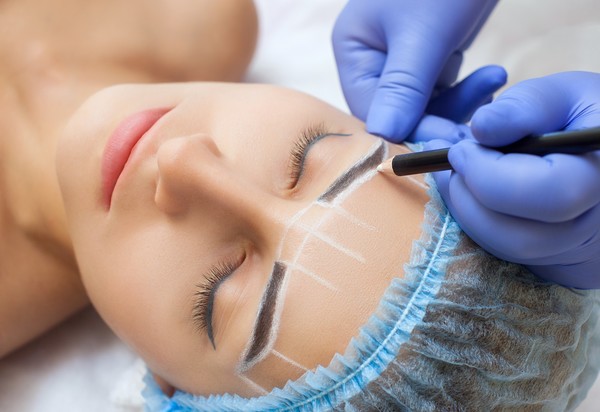
As the debate over legalizing tattoos and semi-permanent makeup has reached a stalemate, there is a growing call to prioritize the legalization of semi-permanent makeup.
The medical community has taken a reserved stance, stating that they do not oppose it outright but with certain conditions.
The National Assembly's Health and Welfare Committee currently has 11 pending bills related to tattooing and semi-permanent makeup. Ten of these bills pertain to tattoos and semi-permanent makeup, while one aims to amend the Public Health Management Act.
The National Assembly has been pushing for unifying the management of tattoo and semi-permanent makeup parlors. On Sept. 19, lawmakers and bureaucrats discussed the issue at the Assembly’s Health and Welfare Committee.
“Through various public hearings, all members of the Health and Welfare Committee have come to think about enacting or amending laws and covering everything related to tattoos. We need to manage without leaving anything in the blind spot," Rep. Han Jeoung-ae of the Democratic Party of Korea said. "We must make it clear to exclude nothing concerning the business domain."
The Ministry of Health and Welfare agreed with the need to legislate semi-permanent makeup and tattoos but remained cautious about how to proceed. The ministry was of the position that even if the two procedures are treated separately, there are still practical issues.
"Both tattoos and semi-permanent makeup are essentially the same invasive act, and the hygiene and safety management should be at the same level,” said Vice Minister of Health and Welfare Park Min-soo at the committee meeting. “We should also consider that it is difficult to distinguish between these acts according to the procedures’ method and manage and supervise them administratively."
As the bill and related discussions faced a lack of progress, some lawmakers started advocating for prioritizing the legislation on semi-permanent makeup, considering its comparatively lower controversy.
On Tuesday, Rep. Hong Seok-jun of the People Power Party held a news conference and called for handling the Semi-Permanent Makeup Act first. Hong introduced the bill in January 2022.
"The Health and Welfare Committee has been reviewing the tattoo bill and the semi-permanent makeup bill at the same time, and the bills are not being processed," Rep. Hong said. "We should speed up legalizing semi-permanent makeup first, considering the public opinion."
Hong noted much opposition to legalizing tattoos from the public and the medical community. “In the case of semi-permanent makeup, however, there is no difference of opinion on allowing it to licensees," he emphasized.
The Korean Medical Association (KMA) also believes that separating semi-permanent makeup and tattoos and incorporating only semi-permanent makeup into the medical system can be considered.
"We are considering institutionalizing only semi-permanent makeup under the premise of securing sufficient safety measures," said Kim Yi-yeon, director of public relations and spokesperson at KMA, told Korea Biomedical Review over the phone.
Kim reiterated that tattooing is considered a medical practice and should fall under the purview of medical laws.
"Calls are mounting within KMA that semi-permanent parlors need to be systematized by, for instance, standardizing training courses and granting and renewing qualifications so that they can be provided safely to the public," Kim said, "The question is how to manage it in the system and to what extent."
Kim reiterated KMA’s concerns over a situation where the demand for legislation on semi-permanent makeup is growing and dismissed as a cultural phenomenon without securing medical evidence. She added that the KMA believes the issue needs to be actively addressed to prevent potential challenges.
"However, we will finalize our official position after considering the opinions of dermatologists and plastic surgeons on safety and other issues. We understand that cautiousness is the prevailing view," Kim said. “We will strive to bridge the gap between social perceptions of generalized semi-permanent makeup and medical and scientific safety."

